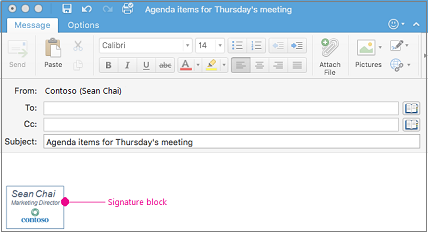
What Os Do I Need To Have For Office 365 Mac
Old habits definitely do die hard, which is probably why I have dutifully pulled out the Microsoft Office for Mac (OfM) install disk every time I've reformatted or upgraded one of the many Macs I've set up and kept running over the years. When recently setting up a new iMac with Mavericks and I couldn't locate that OfM install disk, however, an act of desperation turned into a new modus operandi after I realised that our open-source allies have made the world's most widely used office suite nearly irrelevant. Microsoft Office may be rusted onto the corporate office worker's psyche, but many Mac users will find OpenOffice just as capable. CC BY-SA 3.0 Herzi Pinki.
The recommended application for using the Office 365 service is Outlook. These instructions have been prepared for Mac OS X 10.11 (OS X El Capitan), but they can be applied to other operating system versions with some adjustments. Alternatives to windows movie maker for mac.
There has been a lot of movement in the office-suite market of late, what with Apple releasing Pages, Keynote and Numbers for free; Google Docs popular but; and Microsoft's Office 365 even as the company puts to varying effect. While cloud-based alternatives are getting better all the time, I'm a traditionalist who has used local productivity applications since the days of Wordstar. So, as you can imagine, when I set up a new computer I like to have a writing tool that works whether I'm online or not. Previous versions of iWork had promise as an alternative, but I have a long-running feud with Apple over iWork for one simple reason: Apple refuses to give it the ability to simply load and save files in Word's.DOC format. That's right: the only way to handle documents in Pages is by saving your working documents as.pages files – which are, inexplicably, often 10 or more times larger than their Word.DOC equivalent – and then exporting.DOC versions as and when you need them. If you work with a lot of documents, the double-handling rapidly grates on you. I was hoping to standardise on Pages after hearing about Apple's move to make it free, but Apple is still insisting that we use its own file format to save documents.
Little wonder the business community has been increasingly: in the real world – the business world outside Apple's closed-garden ecosystem –absolutely nobody uses the.pages format. Apple's determination to force it down our throats has made its latest iWork iteration less of an Office killer and something more resembling TextEdit on steroids. At any rate, with Pages out of the question and Office nowhere to be found, I took a chance and revisited the open-source equivalent, OpenOffice, to see if it might allow me to maintain my workflow based on the frequent loading, editing and saving of.DOC files. OpenOffice has been around for some time, but despite heroic efforts by its developers it has struggled to gain a massive following mainly because Microsoft Office is so broadly available.